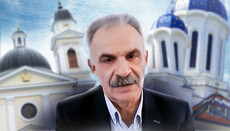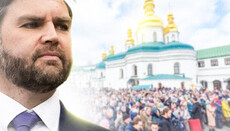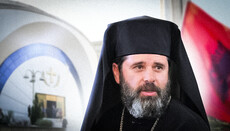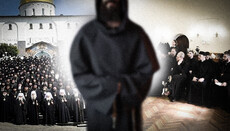On canons and Ukrainian autocephaly
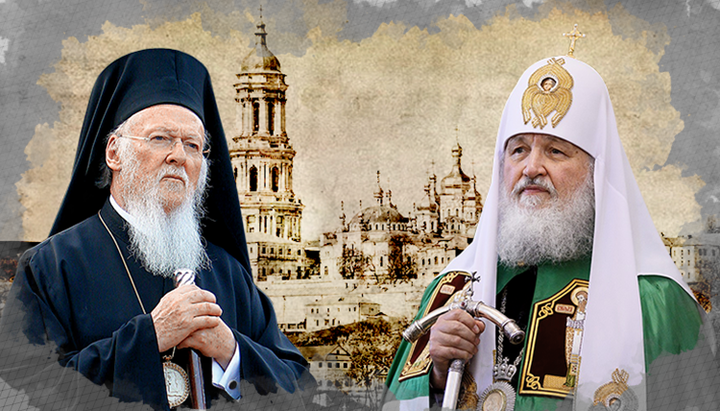
Attempts to grant autocephaly to Ukraine by Phanar are explained by ancient canons and the right to decide interchurch questions by the Ecumenical Patriarch.
Now that the Patriarchate of Constantinople has sent its exarchs to Ukraine, thereby confronting both the Ukrainian and the Russian Orthodox Churches with a fact of its interference in the affairs of Ukrainian Orthodoxy, many people ask: What are the reasons for such tough actions of Phanar? Are there any canonical grounds for them? Let's try to figure it out.
Indeed, in accordance with the order of the Pentarchy of the Patriarchs, established at 1-4 Ecumenical Councils and confirmed by all other Ecumenical Councils (including the subsequent Councils of the Church of Constantinople), the first five Patriarchates are given special authority to decide general church questions. Recall, by the way, that, according to the same order of the Pentarchy, the Moscow Patriarch ranks the fifth in it.
The 4th Ecumenical Council singled out two bishops, of Rome and Constantinople, as those who can resolve issues arising between the Patriarchs of the Pentarchy, granting them the right of diarchy (Roman bishop in the West, Constantinople – in the East). This is stated in the 28th rule of the 4th Ecumenical Council. This right did not concern the Church governance or the imposition of any dogmatic provisions (which was decided conciliarly), it was applied only in cases of appeals of the lower in rank to the highest with various injustices, and also the right to decide general church questions, the main of them, subsequently, was the question of granting autocephaly.
In 1054, there was a division not merely between the Local Churches, but between the two Churches of the diarchy – the East and the West. Since that time, according to Phanar, privileges in deciding interchurch questions have been concentrated in the hands of the bishop of Constantinople, New Rome.
All this is indeed the case in canon law. However, there are a few very significant "buts".
First. The special significance of the Constantinople See was due only to the fact that it was located in the reigning city of the Byzantine Empire. The same can be said about Rome (we recall the division of the Byzantine Empire into the Eastern and the Western), with the only but significant addition – the thesis of the primacy of the Apostle Peter. Therefore, even when the political situation of Rome changed, the primacy of St Peter remained. And it is this thesis that is focused on by the successors of the Roman bishop.
But with the fall of Constantinople, its role in the Orthodox world was levelled, which is quite natural. In turn, the Russian Church became more and more influential. Hence, the desire of the ROC to take a more appropriate position is quite understandable, because in Russia (in Moscow) there was an Orthodox king, while Constantinople became an Islamic Istanbul. Constantinople Patriarchs go to Moscow to beg (two of them, as we remember, died on the way to the capital of the Russian state). Therefore, the "autocephalous" arguments of Constantinople are based on realities of a completely different time and they "work" only in the system of the Imperial Church. All other options were merely not supposed by the canons.
Second (continuation of the first). In addition to the 28th canon of the Fourth Ecumenical Council, there are other canons that speak of the role of the Patriarchate of Constantinople in the life of the Church, beginning with the canons of the 34th, 35th, 37th Apostolic Council, the 4th and 5th canons of the First Ecumenical Council, and especially the 2nd and 3d canons of the Second Ecumenical Council. They argue why the Ecumenical Patriarch has all these preferences. And it turns out that all the arguments are reduced to one thing – the advantage of the Patriarchate of Constantinople as the Church, which is in the capital of the empire, the Reigning City! However, in our XXI century, there is neither the empire, no the Reigning City. Accordingly, all these canonical rules in this reality are groundless.
Third. The rule that autocephaly can be granted by the Kiriarchal Church (in agreement with other Local Churches) is based on the canonical provision that the bishop can perform any changes only within his jurisdiction.
For example, the 35th canon of the Holy Apostles reads: "A Bishop shall not dare to confer ordinations outside of his own boundaries, in cities and, territories not subject to him. If he be proved to have done so against the wishes of those having possession of those cities or territories, let him be deposed, as well as those whom he ordained." (In addition, see 1 Ecum. 15, 2 Ecum. 2, 3 Ecum. 8, 4 Ecum. 5, 6 Ecum. 17, Antioch 13 and 22, Sardic. 3 and 15, Carth. 59 and 65). This means that the Patriarchate of Constantinople has no right to take any decisions that concern the autonomous Ukrainian Orthodox Church.
Fourth. The 4th Toledo Council of 633, presided by St. Isidore of Seville, established in its 34th canon: "Enacts that thirty years possession shall give to a bishop lawful right over a Church situated in the diocese of another bishop if in the same province."
Even earlier, the 17th canon of the Fourth Ecumenical Council (451) sets a time limit for church territorial disputes: "As touching rural parishes, or country parishes, in any province, they shall remain in the undisputed possession of the bishops now holding them, and especially if they have held them in their possession and have managed them without coercion for thirty years or more. But if during a period of thirty years there has arisen or should arise some dispute concerning them, those claiming to have been unjustly treated shall be permitted to complain to the Synod of the province." Constantinople, by the way, was silent exactly ten times more - for 330 years! – about its rights to the Kiev Metropolis. Therefore, if you follow the canons, he lost these rights a long time ago – hundreds of years ago.
So, there are three legitimate options for the development of events around Ukrainian Orthodoxy:
- Constantinople, on mature reflection, withdraws its legates from Ukraine and states the fact that it is impossible to interfere in the internal affairs of the UOC.
- Constantinople convenes the Ecumenical Council, which decides the fate of the UOC.
- The ROC convenes the same Ecumenical Council, which raises the question of revising the ancient canons and finally deciding who has the right to grant autocephaly.
Whatever it is, it is very likely to be almost impossible or at least very difficult to resolve the "Ukrainian issue" in canon law in the present state of affairs. Until now, it has been believed that no canons are subject to revision or change. But now we see that some canons (in particular, on the primacy of the Church of Constantinople), which seemed legitimate 1500 years ago, have long lost their relevance. Undoubtedly, the revision of the canons of the Church concerning its doctrine is impossible. But the provisions that can justify and encourage the intervention of one church structure in the affairs of another one can hardly have the status of the untouchable. Otherwise, the Pope may well appear in Eastern Christianity. But will this benefit the Orthodox Christian Church?
